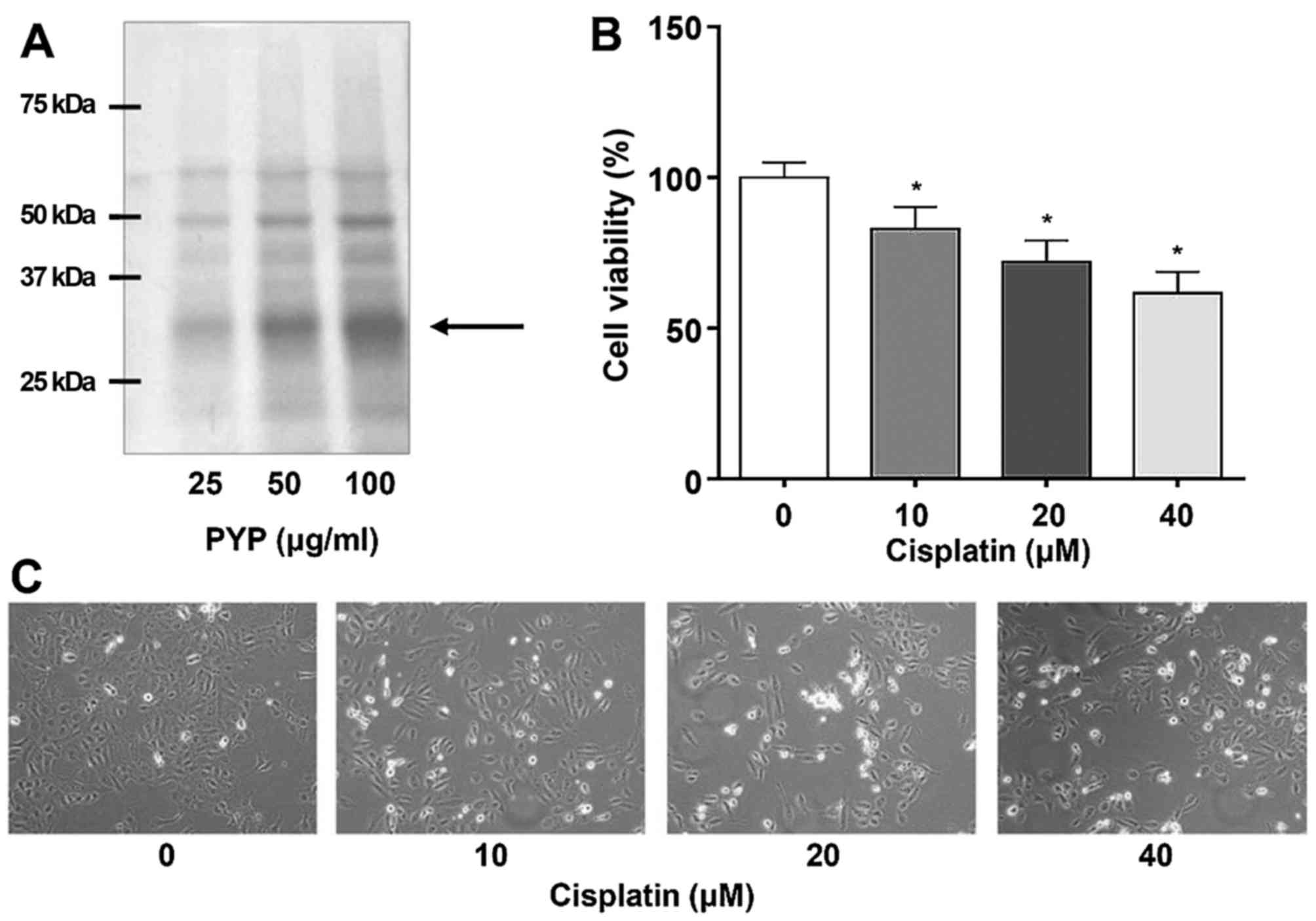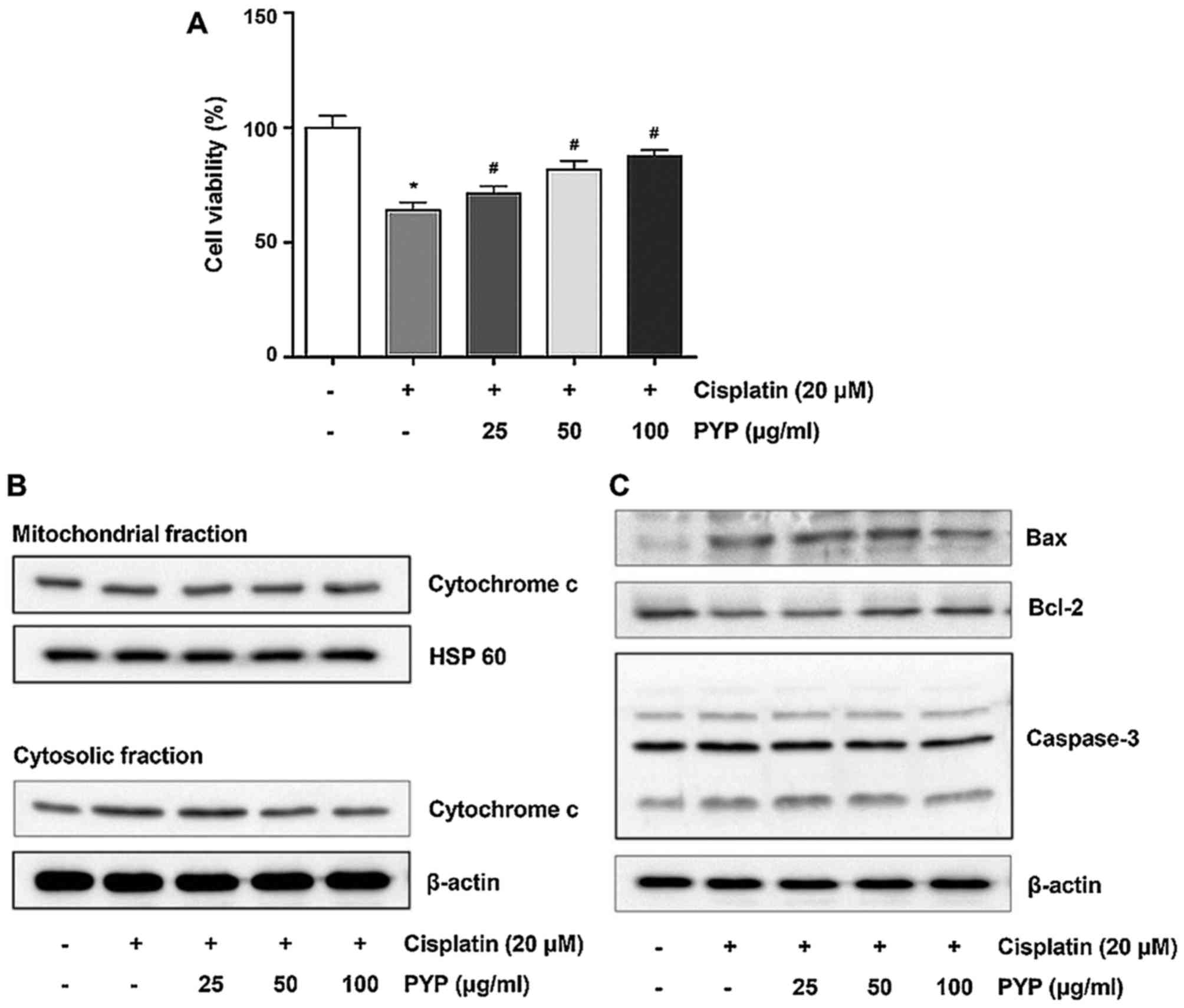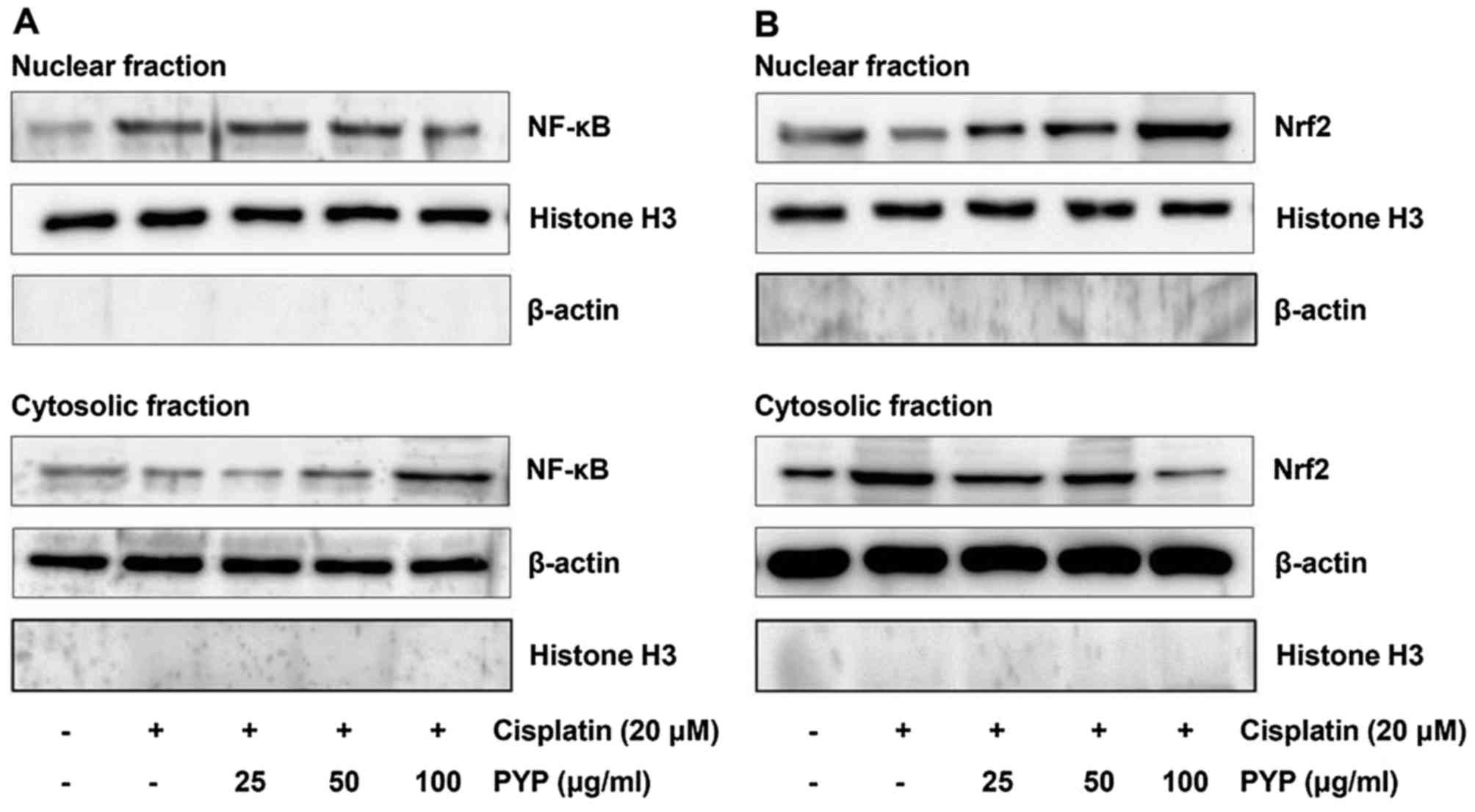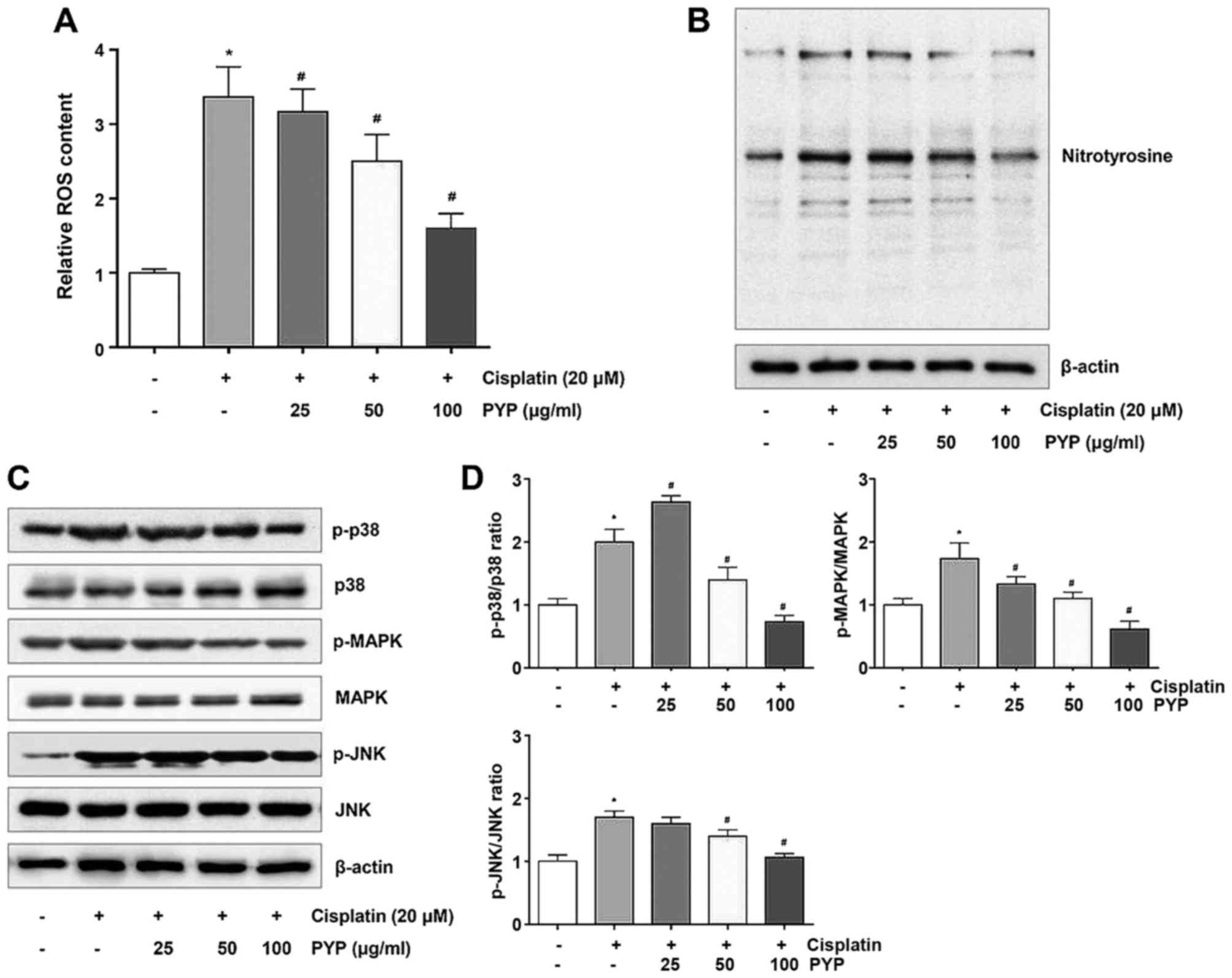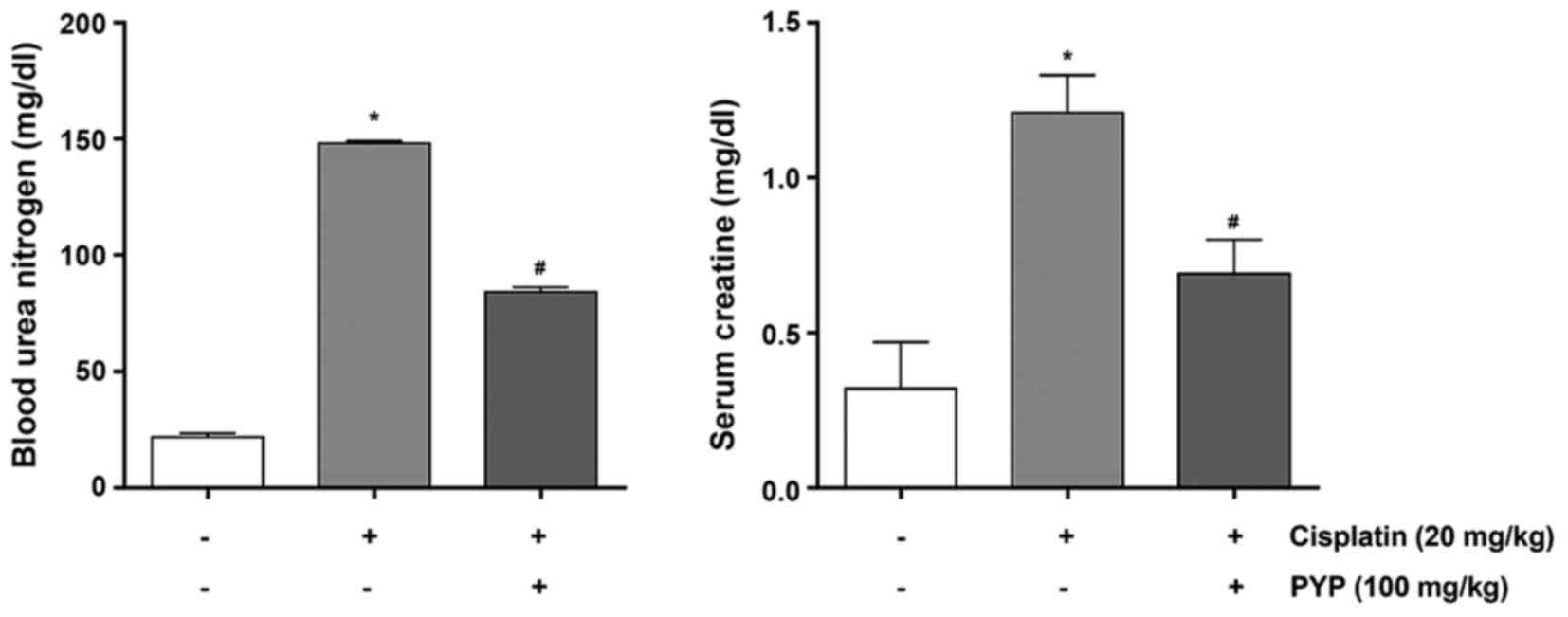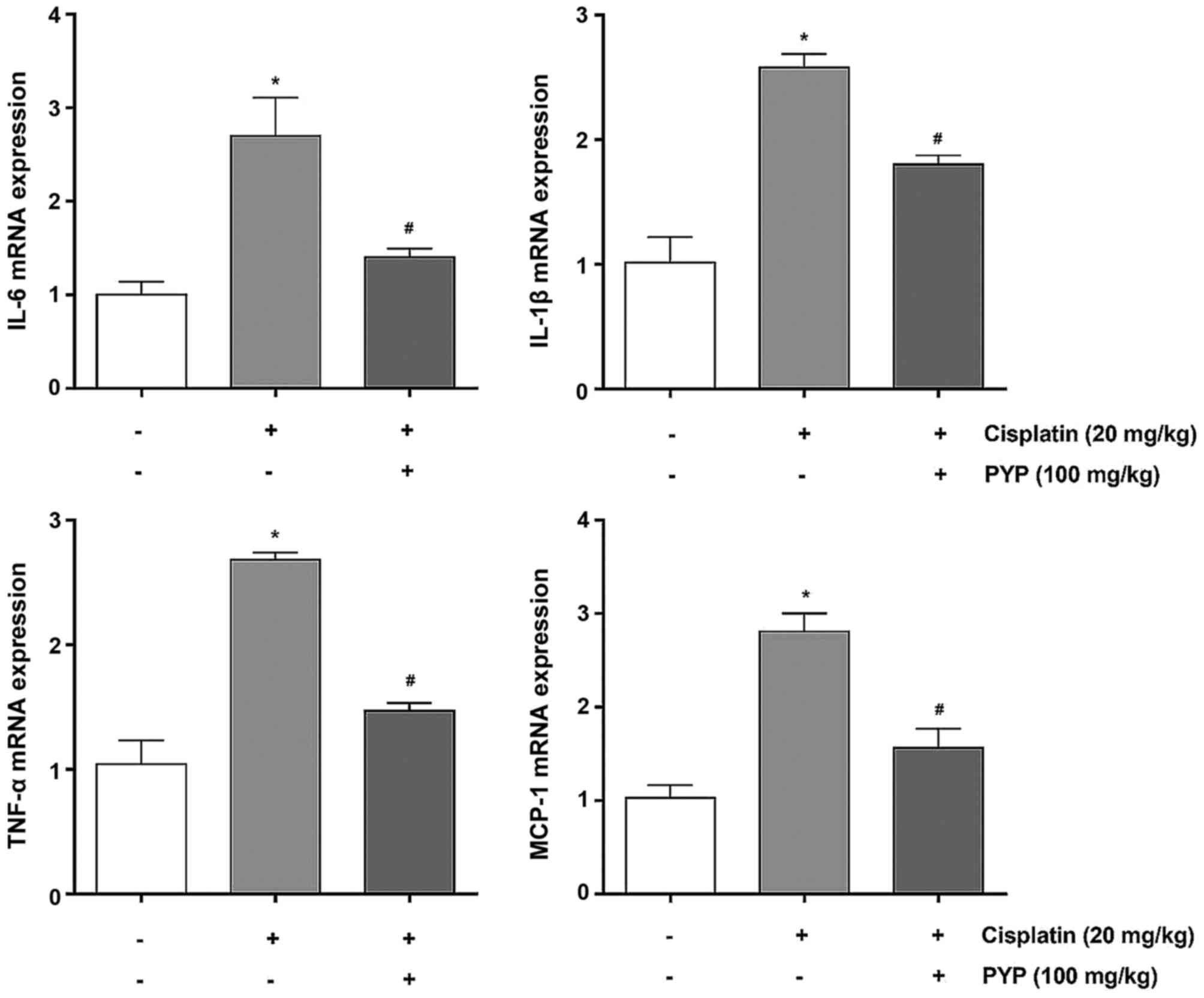|
1
|
Kowald A and Kirkwood TB: Can aging be
programmed? A critical literature review. Aging Cell. 15:986–998.
2016. View Article : Google Scholar
|
|
2
|
Vaiserman AM, Lushchak OV and Koliada AK:
Anti-aging pharmacology: Promises and pitfalls. Ageing Res Rev.
31:9–35. 2016. View Article : Google Scholar : PubMed/NCBI
|
|
3
|
Wen J, Zeng M, Shu Y, Guo D, Sun Y, Guo Z,
Wang Y, Liu Z, Zhou H and Zhang W: Aging increases the
susceptibility of cisplatin-induced nephrotoxicity. Age (Dordr).
37:1122015. View Article : Google Scholar
|
|
4
|
Wang X, Bonventre JV and Parrish AR: The
aging kidney: Increased susceptibility to nephrotoxicity. Int J Mol
Sci. 15:15358–15376. 2014. View Article : Google Scholar : PubMed/NCBI
|
|
5
|
Anand S, Johansen KL and Kurella Tamura M:
Aging and chronic kidney disease: The impact on physical function
and cognition. J Gerontol A Biol Sci Med Sci. 69:315–322. 2014.
View Article : Google Scholar
|
|
6
|
He YH, Pu SY, Xiao FH, Chen XQ, Yan DJ,
Liu YW, Lin R, Liao XP, Yu Q, Yang LQ, et al: Improved lipids,
diastolic pressure and kidney function are potential contributors
to familial longevity: A study on 60 Chinese centenarian families.
Sci Rep. 6:219622016. View Article : Google Scholar : PubMed/NCBI
|
|
7
|
Calvo-Rubio M, Burón MI, López-Lluch G,
Navas P, de Cabo R, Ramsey JJ, Villalba JM and González-Reyes JA:
Dietary fat composition influences glomerular and proximal
convoluted tubule cell structure and autophagic processes in
kidneys from calorie-restricted mice. Aging Cell. 15:477–487. 2016.
View Article : Google Scholar : PubMed/NCBI
|
|
8
|
Chevalier RL: The proximal tubule is the
primary target of injury and progression of kidney disease: Role of
the glomerulotubular junction. Am J Physiol Renal Physiol.
311:F145–F161. 2016. View Article : Google Scholar : PubMed/NCBI
|
|
9
|
Li Z, Sheng Y, Liu C, Li K, Huang X, Huang
J and Xu K: Nox4 has a crucial role in uric acid induced oxidative
stress and apoptosis in renal tubular cells. Mol Med Rep.
13:4343–4348. 2016. View Article : Google Scholar : PubMed/NCBI
|
|
10
|
Rogers NM, Stephenson MD, Kitching AR,
Horowitz JD and Coates PT: Amelioration of renal
ischaemia-reperfusion injury by liposomal delivery of curcumin to
renal tubular epithelial and antigen-presenting cells. Br J
Pharmacol. 166:194–209. 2012. View Article : Google Scholar :
|
|
11
|
Li J, Gui Y, Ren J, Liu X, Feng Y, Zeng Z,
He W, Yang J and Dai C: Metformin protects against
cisplatin-induced tubular cell apoptosis and acute kidney injury
via AMPKα-regulated autophagy induction. Sci Rep. 6:239752016.
View Article : Google Scholar
|
|
12
|
Markó L, Vigolo E, Hinze C, Park JK, Roël
G, Balogh A, Choi M, Wübken A, Cording J, Blasig IE, et al: Tubular
epithelial NF-κB activity regulates ischemic AKI. J Am Soc Nephrol.
27:2658–2669. 2016.
|
|
13
|
Stathopoulos GP: Cisplatin: Process and
future. J BUON. 18:564–569. 2013.PubMed/NCBI
|
|
14
|
Dugbartey GJ, Bouma HR, Lobb I and Sener
A: Hydrogen sulfide: A novel nephroprotectant against
cisplatin-induced renal toxicity. Nitric Oxide. 57:15–20. 2016.
View Article : Google Scholar : PubMed/NCBI
|
|
15
|
Herrera-Pérez Z, Gretz N and Dweep H: A
comprehensive review on the genetic regulation of cisplatin-induced
nephrotoxicity. Curr Genomics. 17:279–293. 2016. View Article : Google Scholar : PubMed/NCBI
|
|
16
|
El-Naga RN and Mahran YF:
Indole-3-carbinol protects against cisplatin-induced acute
nephrotoxicity: Role of calcitonin gene-related peptide and
insulin-like growth factor-1. Sci Rep. 6:298572016. View Article : Google Scholar : PubMed/NCBI
|
|
17
|
Thongnuanjan P and Soodvilai S,
Chatsudthipong V and Soodvilai S: Fenofibrate reduces
cisplatin-induced apoptosis of renal proximal tubular cells via
inhibition of JNK and p38 pathways. J Toxicol Sci. 41:339–349.
2016. View Article : Google Scholar : PubMed/NCBI
|
|
18
|
Cunha L and Grenha A: Sulfated seaweed
polysaccharides as multifunctional materials in drug delivery
applications. Mar Drugs. 14:e422016. View Article : Google Scholar : PubMed/NCBI
|
|
19
|
Grasa-López A, Miliar-García Á,
Quevedo-Corona L, Paniagua-Castro N, Escalona-Cardoso G,
Reyes-Maldonado E and Jaramillo-Flores ME: Undaria pinnatifida and
fucoxanthin ameliorate lipogenesis and markers of both inflammation
and cardiovascular dysfunction in an animal model of diet-induced
obesity. Mar Drugs. 14:e1482016. View Article : Google Scholar : PubMed/NCBI
|
|
20
|
Choi JW, Kim IH, Kim YM, Lee MK and Nam
TJ: Pyropia yezoensis glycoprotein regulates antioxidant status and
prevents hepatotoxicity in a rat model of
D-galactosamine/lipopolysaccharide-induced acute liver failure. Mol
Med Rep. 13:3110–3114. 2016. View Article : Google Scholar : PubMed/NCBI
|
|
21
|
Cian RE, Drago SR, de Medina FS and
Martínez-Augustin O: Proteins and carbohydrates from red seaweeds:
Evidence for beneficial effects on gut function and microbiota. Mar
Drugs. 13:5358–5383. 2015. View Article : Google Scholar : PubMed/NCBI
|
|
22
|
Park HK, Kim IH, Kim J and Nam TJ:
Induction of apoptosis and the regulation of ErbB signaling by
laminarin in HT-29 human colon cancer cells. Int J Mol Med.
32:291–295. 2013. View Article : Google Scholar : PubMed/NCBI
|
|
23
|
Park HK, Kim IH, Kim J and Nam TJ:
Induction of apoptosis by laminarin, regulating the insulin-like
growth factor-IR signaling pathways in HT-29 human colon cells. Int
J Mol Med. 30:734–738. 2012. View Article : Google Scholar : PubMed/NCBI
|
|
24
|
Min EY, Kim IH, Lee J, Kim EY, Choi YH and
Nam TJ: The effects of fucodian on senescence are controlled by the
p16INK4a-pRb and p14Arf-p53 pathways in hepatocellular carcinoma
and hepatic cell lines. Int J Oncol. 45:47–56. 2014. View Article : Google Scholar : PubMed/NCBI
|
|
25
|
Park HY, Han MH, Park C, Jin CY, Kim GY,
Choi IW, Kim ND, Nam TJ, Kwon TK and Choi YH: Anti-inflammatory
effects of fucoidan through inhibition of NF-κB, MAPK and Akt
activation in lipopolysaccharide-induced BV2 microglia cells. Food
Chem Toxicol. 49:1745–1752. 2011. View Article : Google Scholar : PubMed/NCBI
|
|
26
|
Go H, Hwang HJ and Nam TJ: A glycoprotein
from Laminaria japonica induces apoptosis in HT-29 colon cancer
cells. Toxicol In Vitro. 24:1546–1553. 2010. View Article : Google Scholar : PubMed/NCBI
|
|
27
|
Koyanagi S, Tanigawa N, Nakagawa H, Soeda
S and Shimeno H: Oversulfation of fucoidan enhances its
anti-angiogenic and antitumor activities. Biochem Pharmacol.
65:173–179. 2003. View Article : Google Scholar
|
|
28
|
Heo SJ, Park EJ, Lee KW and Jeon YJ:
Antioxidant activities of enzymatic extracts from brown seaweeds.
Bioresour Technol. 96:1613–1623. 2005. View Article : Google Scholar : PubMed/NCBI
|
|
29
|
Mhadhebi L, Mhadhebi A, Robert J and
Bouraoui A: Antioxidant, anti-inflammatory and antiproliferative
effects of aqueous extracts of three mediterranean brown seaweeds
of the genus Cystoseira. Iran J Pharm Res. 13:207–220.
2014.PubMed/NCBI
|
|
30
|
Song MY, Ku SK, Kim HJ and Han JS: Low
molecular weight fucoidan ameliorating the chronic
cisplatin-induced delayed gastrointestinal motility in rats. Food
Chem Toxicol. 50:4468–4478. 2012. View Article : Google Scholar : PubMed/NCBI
|
|
31
|
Easton C, Turner A and Sewell G: An
evaluation of the toxicity and bioaccumulation of cisplatin in the
marine environment using the macroalga, Ulva lactuca. Environ
Pollut. 159:3504–3508. 2011. View Article : Google Scholar : PubMed/NCBI
|
|
32
|
Choi JW, Kim YM, Park SJ, Kim IH and Nam
TJ: Protective effect of Porphyra yezoensis glycoprotein on
D-galactosamine induced cytotoxicity in Hepa 1c1c7 cells. Mol Med
Rep. 11:3914–3919. 2015. View Article : Google Scholar : PubMed/NCBI
|
|
33
|
Lee HA, Kim IH and Nam TJ: Bioactive
peptide from Pyropia yezoensis and its anti-inflammatory
activities. Int J Mol Med. 36:1701–1706. 2015. View Article : Google Scholar : PubMed/NCBI
|
|
34
|
Choi JW, Kim IH, Kim YM, Lee MK, Choi YH
and Nam TJ: Protective effect of Pyropia yezoensis glycoprotein on
chronic ethanol consumption-induced hepatotoxicity in rats. Mol Med
Rep. 14:4881–4886. 2016. View Article : Google Scholar : PubMed/NCBI
|
|
35
|
Choi JW, Kwon MJ, Kim IH, Kim YM, Lee MK
and Nam TJ: Pyropia yezoensis glycoprotein promotes the M1 to M2
macrophage phenotypic switch via the STAT3 and STAT6 transcription
factors. Int J Mol Med. 38:666–674. 2016. View Article : Google Scholar : PubMed/NCBI
|
|
36
|
Ryu J, Park SJ, Kim IH, Choi YH and Nam
TJ: Protective effect of porphyra-334 on UVA-induced photoaging in
human skin fibroblasts. Int J Mol Med. 34:796–803. 2014. View Article : Google Scholar : PubMed/NCBI
|
|
37
|
Shin ES, Hwang HJ, Kim IH and Nam TJ: A
glycoprotein from Porphyra yezoensis produces anti-inflammatory
effects in liposaccharide-stimulated macrophages via the TLR4
signaling pathway. Int J Mol Med. 28:809–815. 2011.PubMed/NCBI
|
|
38
|
Lee MK, Kim IH, Choi YH and Nam TJ: A
peptide from Porphyra yezoensis stimulates the proliferation of
IEC-6 cells by activating the insulin-like growth factor I receptor
signaling pathway. Int J Mol Med. 35:533–538. 2015. View Article : Google Scholar :
|
|
39
|
Lee MK, Kim IH, Choi YH, Choi JW, Kim YM
and Nam TJ: The proliferative effects of Pyropia yezoensis peptide
on IEC-6 cells are mediated through the epidermal growth factor
receptor signaling pathway. Int J Mol Med. 35:909–914. 2015.
View Article : Google Scholar : PubMed/NCBI
|
|
40
|
Park SJ, Ryu J, Kim IH, Choi YH and Nam
TJ: Activation of the mTOR signaling pathway in breast cancer MCF 7
cells by a peptide derived from Porphyra yezoensis. Oncol Rep.
33:19–24. 2015. View Article : Google Scholar
|
|
41
|
Park SJ, Ryu J, Kim IH, Choi YH and Nam
TJ: Induction of apoptosis by a peptide from Porphyra yezoensis:
Regulation of the insulin-like growth factor I receptor signaling
pathway in MCF-7 cells. Int J Oncol. 45:1011–1016. 2014. View Article : Google Scholar : PubMed/NCBI
|
|
42
|
Kang BY, Kim S, Lee KH, Lee YS, Hong I,
Lee MO, Min D, Chang I, Hwang JS, Park JS, et al: Transcriptional
profiling in human HaCaT keratinocytes in response to kaempferol
and identification of potential transcription factors for
regulating differential gene expression. Exp Mol Med. 40:208–219.
2008. View Article : Google Scholar : PubMed/NCBI
|
|
43
|
Ryu J, Kwon MJ and Nam TJ: Nrf2 and NF-κB
signaling pathways contribute to porphyra-334-mediated inhibition
of UVA-induced inflammation in skin fibroblasts. Mar Drugs.
13:4721–4732. 2015. View Article : Google Scholar : PubMed/NCBI
|
|
44
|
Aiello S and Noris M: Klotho in acute
kidney injury: Biomarker, therapy, or a bit of both? Kidney Int.
78:1208–1210. 2010. View Article : Google Scholar : PubMed/NCBI
|
|
45
|
Basile DP, Anderson MD and Sutton TA:
Pathophysiology of acute kidney injury. Compr Physiol. 2:1303–1353.
2012.PubMed/NCBI
|
|
46
|
Simmons EM, Himmelfarb J, Sezer MT,
Chertow GM, Mehta RL, Paganini EP, Soroko S, Freedman S, Becker K,
Spratt D, et al PICARD Study Group: Plasma cytokine levels predict
mortality in patients with acute renal failure. Kidney Int.
65:1357–1365. 2004. View Article : Google Scholar : PubMed/NCBI
|
|
47
|
Rewa O and Bagshaw SM: Acute kidney
injury-epidemiology, outcomes and economics. Nat Rev Nephrol.
10:193–207. 2014. View Article : Google Scholar : PubMed/NCBI
|
|
48
|
Maruyama T, Yamamoto S, Qiu J, Ueda Y,
Suzuki T, Nojima M and Shima H: Apoptosis of bladder cancer by
sodium butyrate and cisplatin. J Infect Chemother. 18:288–295.
2012. View Article : Google Scholar
|
|
49
|
Wang M, Liu ZM, Li XC, Yao YT and Yin ZX:
Activation of ERK1/2 and Akt is associated with cisplatin
resistance in human lung cancer cells. J Chemother. 25:162–169.
2013. View Article : Google Scholar : PubMed/NCBI
|
|
50
|
Brechbuhl HM, Kachadourian R, Min E, Chan
D and Day BJ: Chrysin enhances doxorubicin-induced cytotoxicity in
human lung epithelial cancer cell lines: The role of glutathione.
Toxicol Appl Pharmacol. 258:1–9. 2012. View Article : Google Scholar :
|
|
51
|
Wang R, MoYung KC, Zhao YJ and Poon K: A
Mechanism for the temporal potentiation of genipin to the
ctotoxicity of cisplatin in colon cancer cells. Int J Med Sci.
13:507–516. 2016. View Article : Google Scholar :
|
|
52
|
Yan D, An G and Kuo MT: C-Jun N-terminal
kinase signalling pathway in response to cisplatin. J Cell Mol Med.
20:2013–2019. 2016. View Article : Google Scholar : PubMed/NCBI
|
|
53
|
Perkins ND: Integrating cell-signalling
pathways with NF-kappaB and IKK function. Nat Rev Mol Cell Biol.
8:49–62. 2007. View Article : Google Scholar
|
|
54
|
Basak S and Hoffmann A: Crosstalk via the
NF-kappaB signaling system. Cytokine Growth Factor Rev. 19:187–197.
2008. View Article : Google Scholar : PubMed/NCBI
|
|
55
|
Hayden MS and Ghosh S: Shared principles
in NF-kappaB signaling. Cell. 132:344–362. 2008. View Article : Google Scholar : PubMed/NCBI
|
|
56
|
Kim J, Long KE, Tang K and Padanilam BJ:
Poly(ADP-ribose) polymerase 1 activation is required for cisplatin
nephrotoxicity. Kidney Int. 82:193–203. 2012. View Article : Google Scholar : PubMed/NCBI
|
|
57
|
Lee S, Kim W, Moon SO, Sung MJ, Kim DH,
Kang KP, Jang YB, Lee JE, Jang KY and Park SK: Rosiglitazone
ameliorates cisplatin-induced renal injury in mice. Nephrol Dial
Transplant. 21:2096–2105. 2006. View Article : Google Scholar : PubMed/NCBI
|
|
58
|
Al-Lamki RS, Lu W, Finlay S, Twohig JP,
Wang EC, Tolkovsky AM and Bradley JR: DR3 signaling protects
against cisplatin nephrotoxicity mediated by tumor necrosis factor.
Am J Pathol. 180:1454–1464. 2012. View Article : Google Scholar : PubMed/NCBI
|
|
59
|
Benedetti G, Fokkelman M, Yan K,
Fredriksson L, Herpers B, Meerman J, van de Water B and de Graauw
M: The nuclear factor κB family member RelB facilitates apoptosis
of renal epithelial cells caused by cisplatin/tumor necrosis factor
α synergy by suppressing an epithelial to mesenchymal
transition-like phenotypic switch. Mol Pharmacol. 84:128–138. 2013.
View Article : Google Scholar : PubMed/NCBI
|
|
60
|
Sahu BD, Tatireddy S, Koneru M, Borkar RM,
Kumar JM, Kuncha M, Srinivas R, Shyam Sunder R and Sistla R:
Naringin ameliorates gentamicin-induced nephrotoxicity and
associated mitochondrial dysfunction, apoptosis and inflammation in
rats: Possible mechanism of nephroprotection. Toxicol Appl
Pharmacol. 277:8–20. 2014. View Article : Google Scholar : PubMed/NCBI
|
|
61
|
Taye A and Ibrahim BM: Activation of renal
haeme oxygenase-1 alleviates gentamicin-induced acute
nephrotoxicity in rats. J Pharm Pharmacol. 65:995–1004. 2013.
View Article : Google Scholar : PubMed/NCBI
|
|
62
|
Sepand MR, Ghahremani MH,
Razavi-Azarkhiavi K, Aghsami M, Rajabi J, Keshavarz-Bahaghighat H
and Soodi M: Ellagic acid confers protection against
gentamicin-induced oxidative damage, mitochondrial dysfunction and
apoptosis-related nephrotoxicity. J Pharm Pharmacol. 68:1222–1232.
2016. View Article : Google Scholar : PubMed/NCBI
|















